Cultural Resources
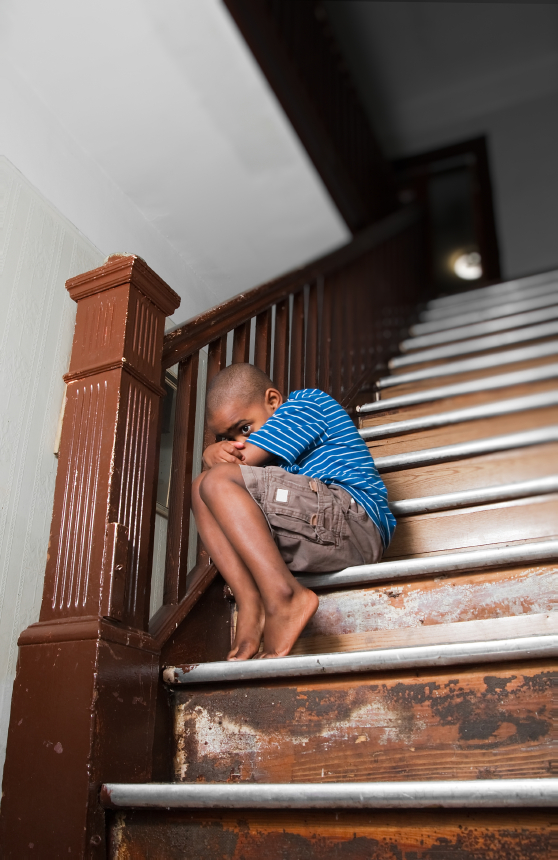 |
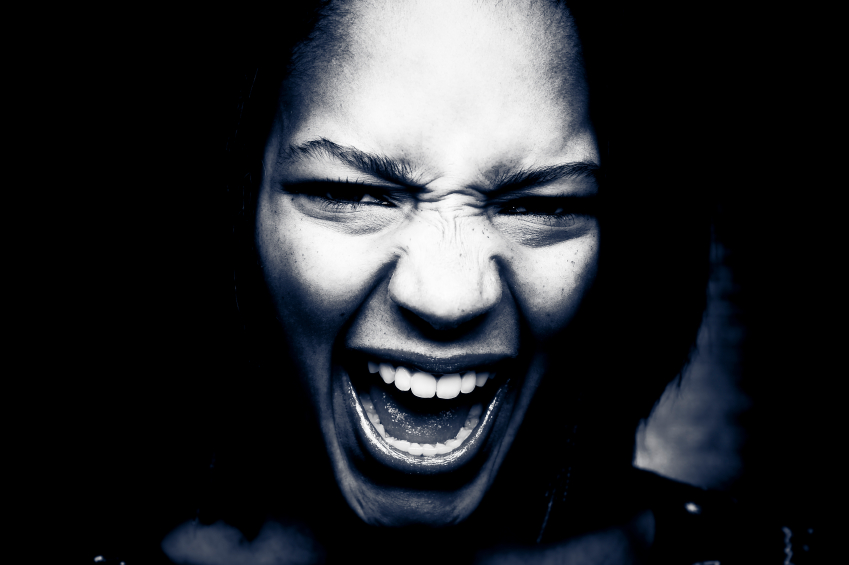 |
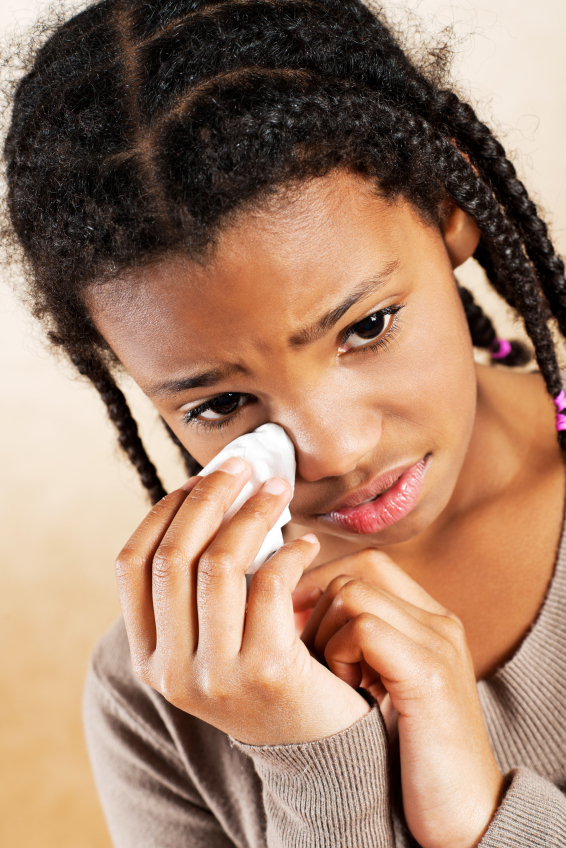 |
ANTI-DOMESTIC VIOLENCE DAY
CULTURAL RESOURCES
Sunday, June 24, 2012
Rodney A. Thomas Jr., Guest Cultural Resource Commentator
Teacher and Writer, Fort Worth, TX
Scripture – Psalm 11:4-7
- Prior to the day on which your church celebrates Anti-Domestic Day, offer lectures and workshops about domestic violence and ways to end it. Invite local and national speakers and persons who are trained to aid domestic violence victims. Advertise the event well on social media. Be sure to involve youth and teens and partner with sister churches and state and federal organizations. Have resources available for those who need immediate help.
I. Historical Section: Slavery and Familial Violence
The problem of Domestic Violence in the United States within households is a cycle of sin and a reign of terror predominantly done by men towards women and children.
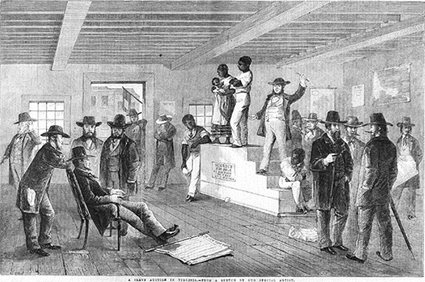
The story of black families in America begins with the saga of the Middle Passage and the slave auction. It was during their time of enslavement that black families were produced out of a system of perpetual violence, racism, and economic inequality. Black bodies remained under the threat of being sold without a moment’s notice, and therefore far too often, black families were tormented with the possibility of being separated from one another. As part of the legal code in the American colonies and in Europe, marriages between an enslaved black man and an enslaved black woman were considered neither religiously sacred nor legally valid.
At the state court level in the United States even after the American Revolution, whites misread Scripture to deny the rights of enslaved black families using the racist logic of the Curse of Ham, and its subsequent interpretation that interwoven in the Common Law tradition.1 Economic, racial, and gender violence became internalized in the life of U.S. black American families. Even after emancipation, the 14th and 15th Amendments, and the modern Civil (human) Rights Movement that began in the 1950s, black families are still struggling with violence in their own homes.
While Alabama was the first state in the Union to “rescind the legal right of men to beat their wives” in 1871, it took well over a century later for Pennsylvania to become the first state to pass legislation that protected the bodies of women from assault and battery.2 The legal recognition of the Anti-Domestic Violence advocacy movement therefore is less than four decades in the making.
II. Cultural Responses: The Black Church, Black Celebrities, and Black Twitter
One of the ways in which the early black church coped with the oppression of being enslaved and the breakup of enslaved black families was through reading and reflecting on the book of Psalms. The Psalter accents “human suffering, gives a voice to the voiceless, and pleads the cause of justice and mercy. Oppression-distress laments, a large collection of poems in the Psalter (more than forty) reflect the pain of people in distress (for example, Psalm 11 […]) as they lament personal and national disasters [emphasis mine].”3
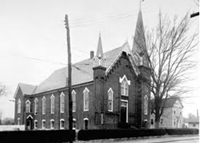 |
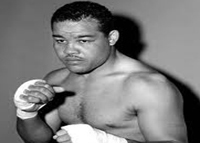 |
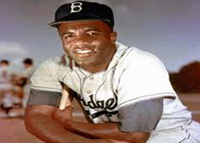 |
||
| Image of an Old Black Church | Joe Louis | Jackie Robinson |
Black churches were the original social networks for black men, women, and children. As time passed, in the minds of some, social leaders and cultural celebrities (like the musicians, athletes, and writers pictured here) surpassed black preachers as the leaders of black communities due in part to the black church’s failure to address relevant issues such as domestic violence. Black singers such as Ella Fitzgerald with her “Stone Cold Dead in the Market (He Had It Coming)” and Bessie Smith with her “Outside of That” openly discussed male violence against women through their music.4
 |
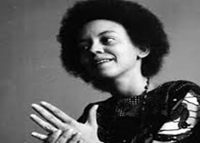 |
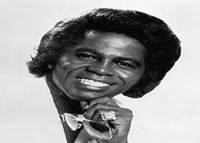 |
||
| James Baldwin | Nikki Giovanni | James Brown |
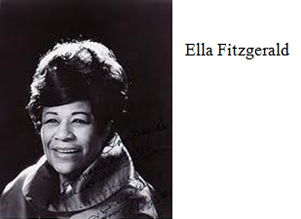 |
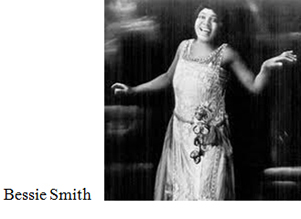 |
 |
Technology, through the latest advances in social media, has given blacks greater opportunities to follow as well as interact with our favorite celebrities. In the online community known as Black Twitter, the realm where over 25% of black Americans who are online use Twitter.com as compared to less than 20% for white Americans, popular hashtags trend in favor of black topics occasionally, from the immoral and unjust execution of Troy Davis (#TroyDavis and #TooMuchDoubt) to reality television (#Basketball Wives).5 Because black churches refuse to confront the national crisis of domestic violence, Black Twitter serves as a forum for discussions concerning domestic violence and black celebrities. Whether it is the trending topics of the recent tragic passing of Whitney Houston (#WhitneyHoustonRIP) or the rapid reaction to the news that Rihanna and Chris Brown (#wifebeater), the man accused of assaulting her, are planning on collaborating on an upcoming track, Black Twitter is now a major medium for all things related to domestic violence and black family life. |
III. Making It a Memorable Learning Moment
- One of the most effective and best ways to raise awareness is through the use of social media such as Twitter and Facebook. News about events spread fast through Twitter by way of #hashtags, which can become Trending Topics (the most prominently used hashtags that are revealed in the background of twitter profiles and get the most notice). The use of Twitter can yield both positive and negative results, with the more positive being that of awareness of social issues, and negative being that of gossip and malicious lies. Therefore, churches should take great care in how they use Twitter. I would suggest, given the 140-character limit on Twitter, for this Anti-Domestic Violence Sunday, to make up creative hashtags such as #ADVSunday12, #ADVD12, #ADVS12, #MournNoMore12, or #AntiDomesticViolenceSunday12 with 12 being the shortened version of the year 2012.
- For those congregations that wish to celebrate the Lord’s Supper on Anti-Domestic Violence Day, consider use of the following “Ritual Revision of the Eucharist” for Anti-Domestic Violence Day.6
As the choir and congregation are singing one of the suggested hymns/songs listed below, the worship leader instructs the male members of the congregation to find a woman, boy, or girl to turn and face, in order to make the make this confession:
Men to Women:
I, as a man, confess that we are responsible for the abuse and violence towards women in the home. I repent of the sin of male domination, and from this day forth, I will promise to live in faithful covenant with God and with the women in my life, to recognize them as human beings made in the image of God.
Women to Men:
I, as a woman, forgive any man in my life who has hurt me. Although there is no excuse for abuse, I confess the sin of any woman that has hindered your growth as a man, and from this day forth, I will promise to live in faithful covenant with God and with the men in my life, to recognize them as human beings made in the image of God.
End of Prayer
Afterward these petitions are lifted before God and the minister gives a corporate prayer. Then, the congregants exchange signs of peace as the Lord’s Supper is resumed with the Words of Institution.
- There’s an oft-quoted scripture in the black church, “weeping may endure for a night, but joy comes in the morning.” The friends of Jepthah’s daughter wailed in tragedy for the loss of their Israelite sister. Jeremiah lamented in tears on God’s behalf for the sins of his people the Judeans. Jesus wept when he lost his friend Lazarus.
Black churches must become a space where people in pain can weep. I would recommend churches begin and maintain both single-sex and mixed-sex concealed gathering groups to cope with domestic violence. Black men must be taught to express their emotions, that it is okay to cry, just as did the authors of the forty Psalms of lament. At the same time, women must be able to find a safe space to address their experiences of being abused. I would encourage churches to start Refuge group ministries (inspired by Psalm 11:1, NRSV), single-sex concealed gathering groups according to those modeled in Dear Sisters: A Womanist Practice of Hospitality.7
If the goal of Anti-Domestic Violence Day is to lead the community out of the oppression of familial violence, then there needs to be a vision of liberation that the Christian tradition of nonviolence can bring. Since we know that God loves righteous deeds (Psalm 11:7, NRSV), nonviolent activity must be learned to become part of the social norm in our everyday lives. The starting of small groups comprised of men and women, across generational lines, would be a great place to start. The purpose of these groups is to record how much violence impacts all of our lives, as the group studies the Bible weekly along with collecting newspaper articles that record violent crimes. Another possible nonviolent political action that these small groups can engage in is to monitor both broadcast television and cable television programming, and count how often plots revolve around the violations of women’s and children’s bodies. Small groups can call for churches to organize to petition networks to change their misogynist ways and join other groups who are already doing this work.8
IV. Sources to Enhance Memorable Learning Moment Experiences
“Black Twitter: A Starter Kit.” Online location: http://www.theroot.com/black-twitter-starter-kit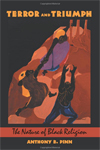 |
Pinn, Anthony. Terror and Triumph: The Nature of Black Religion. Minneapolis, MN: Fortress Press, 2003. |
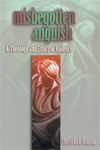 |
Kirk-Duggan, Cheryl A. Misbegotten Anguish: A Theology of Ethics and Violence. St. Louis, MO: Chalice Press, 2001. |
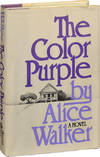 |
Walker, Alice. The Color Purple. New York, NY: Pocket Books (Simon & Schuster, Inc.), 1982. |
V. Audio/Visual Suggestions
One medium that allows people to better understand the horror of domestic violence is film. There are several films aimed at black audiences that can enable conversations on the terrorizing effect of domestic violence. A few movies that come to mind include What’s Love Got to Do With It? (the story of Ike and Tina Turner), The Color Purple (particularly the scenes where actor Danny Glover as Mister Albert Johnson abuses Celie, who is portrayed by Whoopi Goldberg), as well as Tyler Perry’s Madea’s Family Reunion.
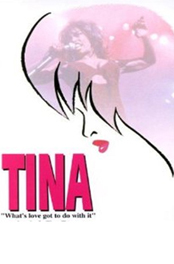 |
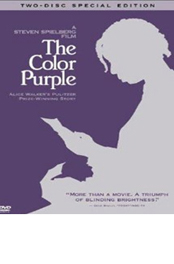 |
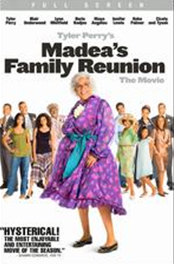 |
I would suggest that before showing any of these films in church, church leaders discuss the appropriateness of showing the violence depicted in these movies. Churches should be prepared to have prayer warriors and professional counselors on hand because of the emotional impact that these movies may cause, especially if the decision is made to allow persons under eighteen to view the movies.
Another possibility for churches to consider is to use social media, this time Youtube.com, to feature anti-domestic violence skits performed by actors from churches and historically black colleges and universities. I would recommend the YouTube video entitled “Domestic Violence (skit for WSSU class)” performed by students from Winston-Salem State University in North Carolina. It was accessible online as of the writing of this cultural resource unit. I would have a discussion about the mildly suggestive language and music played in the video, but overall, its message remains relevant to Anti-Domestic Violence Day. Online location: http://www.youtube.com/watch?v=L72r-KG-Vm0
VI. Reflections
What Is a Strong Black Woman? Reflections on Domestic Violence and Whitney Houston
In the eyes of the media, and even some black folk too, black women have the extraordinary ability to provide food and nourishment for everyone, be successful at work, and still do everything for black churches as well. It is the image of the “strong black woman,” a woman who can carry the weight of the world on her shoulders, that is a fairytale and problematic when it comes to African American female victims of domestic violence.
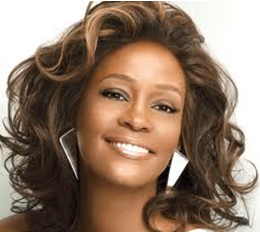 |
Take Whitney Houston, for example. For the record producers and music industry, her voice was a treasure trove. She had a family as she maintained a busy schedule travelling the world on tour, doing concerts and accepting the latest accolades. But money cannot buy happiness. Houston was assaulted by her husband, Bobby Brown, in 2003.9 Perhaps Whitney tolerated the abusive nature of her marriage with Brown, as long as she did, because she had decided to believe that she could take on anything. Perhaps she decided that monetary success and fame mattered more than her mental and physical safety and that of her daughter, Bobbi Christina. |
The Church directly or indirectly cannot continue to aid in black women being viewed as objects, as work mules, and as superwomen. If God “hates the lover over violence,” God expects the church to confront the mindsets, traditions, and laws that continue to subject women to violence. We need to redefine what a “strong black woman” is by biblical standards that black women determine.
VII. Songs That Speak to the Moment
Many times women stay in abusive relationships because they believe they have no real choice. The song “I’d Rather Have Jesus” serves the purpose of reminding abused women that Jesus the Liberator is on their side and knows, through his experience at Calvary, the dreadfulness of violence. This song also reminds the Church of its responsibility—as the Body of Christ Jesus, the Church should be a safe place for victims of domestic violence to turn to. When a person has Jesus, they should also have his Bride, the community of believers.
I’d Rather Have Jesus
I’d rather have Jesus than silver or gold;
I’d rather be His than have riches untold;
I’d rather have Jesus than houses or lands;
I’d rather be led by His nail-pierced hand
Refrain:
Than to be the king of a vast domain
And be held in sin’s dread sway;
I’d rather have Jesus than anything
this world affords today
I’d rather have Jesus than men’s applause;
I’d rather be faithful to His dear cause;
I’d rather have Jesus than worldwide fame;
I’d rather be true to His holy name
Refrain:
Than to be the king of a vast domain
And be held in sin’s dread sway;
I’d rather have Jesus than anything
this world affords today.
He’s fairer than lilies of rarest bloom;
He’s sweeter than honey from out the comb;
He’s all that my hungering spirit needs;
I’d rather have Jesus and let Him lead
Refrain:
Than to be the king of a vast domain
And be held in sin’s dread sway;
I’d rather have Jesus than anything
this world affords today10
The radical nature of the spirituals have long been discussed in the black church, but they are underutilized these days as a teaching tool. It is popular in pop music for female artists to sing about leaving their unfaithful or abusive lovers. Enslaved African Christians spread secret messages through some of the spirituals—messages about escaping and leaving their violent and oppressive enslavers. “Deep River” is one of those songs. There are so many abuse victims who want to cross over into “campground,” into safety. Can’t you hear them sighing in relief, “I ain’t got long to say here”?
Deep River
Deep river, my home is over Jordan,
Deep river, Lord, I want to cross over into campground.
My Lord, he calls me
He calls me by the thunder.
The trumpet sounds within my soul:
I ain’t got long to stay here.
Deep river, my home is over Jordan,
Deep river, Lord, I’m gonna cross over into campground.11
Sometimes victims of domestic violence need to know that there will be people there for them in their time of need. “Lean on Me”paints the ideal picture for what Christians living in solidarity with victims should look like.
Lean on Me
Oooooohhh
Intro:
This is for that little child with no father
For that man that doesn’t have a place to stay
For that little boy living with AIDS
Can I tell you a story, tell you a story
You can lean on me
There’s a man (oh yes)
Standing on the corner
He has no home
He has no food
And his blue skies are gone (yes it is)
Can’t you hear him cryin’ out
And there’s a girl
Searching for a father and a friend
Praying that the storm someday will end
But instead of walking away
Open up your heart and say
Chorus:
I am here
You don’t have to worry
I can see...
I can see your tears
Choir
....your tears
I’ll be there in a hurry when you call
Yes I will
Friends are there to catch you when you fall
Here’s my shoulder
Here’s my shoulder, you can lean on me
Hallelujah
Ooooohhhhh
Listen
Oh, there’s a child
Who is sick and begging to be free
But there is no cure for his disease
He looks up to his mother and
As she hold (holds), his hand (hand)
Prayin’ that someday
The sun will shine again
And the pain?
And the pain will end
Pain will end....Come on
I am here
I am here
You don’t have to worry
You don’t have to worry
I can see...
I see...
....your tears
....your tears, yeah
I’ll be there in a hurry when you call
I’ll be there in a hurry when you call
Friends are there to catch you when you fall
I’m your friend and I’ll catch you when, when, when you fall
Here’s my shoulder, you can lean on me
Here’s my shoulder, you can lean on me
Bridge:
Tell me, how can I, how can I love Jesus
When I’ve never seen His face
Yeah, I see you dying
And I turn and walk away
So hold my hand
Oooooohhhh
Let me take you to a friend of mine
He’s waiting just to ease your troubled mind
Yeah, yeah, He loves you more than you’ll ever know
‘Stead of walking away
Open up
Open up your heart and say
Come on
Chorus:
I am here
I am here
You don’t have to worry
I can see your tears
I’ll be there in a hurry when you call
Alleluia
Aaaaaaah
When you call, friends will be there to catch you when, catch you when you fall
Here’s my shoulder, you can lean on me
Thank you Jesus, yeah
Oh yeah, oh yeah
Choir
Here’s my shoulder, you can lean on me
Here’s my shoulder, you can lean on me
You can lean on me
Lean on me, yeah, yeah
You’re my friend but you’re also my brother
Here’s my shoulder, you can lean on me.12
Notes
1. Sehat, David. The Myth of American Religious Freedom. New York, NY: Oxford University Press, 2011.
2. The U.S. Department of Justice . “The History of the Violence Against Women Act.” Online location: http://www.ovw.usdoj.gov/docs/history-vawa.pdf accessed 2 February 2012
3. Page, Hugh R., ed., et. al., The Africana Bible: Reading Israel’s Scriptures from Africa and the African Diaspora. Minneapolis, MN: Fortress Press, 2010. p. 223.
4. AVClub.com. “The hits keep coming: 30 songs inspired by domestic violence.” Online location: http://www.avclub.com/articles/the-hits-keep-coming-30-songs-inspired-by-domestic,57741/ accessed 2 February 2012
5. Newsone. “Tweeting While Black.” Online location: http://newsone.com/explorations/tweeting-while-black/news-one-staff/black-twitter-history-infographic/ accessed 2 February 2012
6. Riggs, Marcia. Plenty Good Room: Women Versus Male Power in the Black Church. Cleveland, OH: The Pilgrim Press, 2003. pp. 113–115.
7. Westfield, N. Lynne.Dear Sisters: A Womanist Practice of Hospitality. Cleveland, OH: The Pilgrim Press, 2001. pp. 85–94.
8. Weems, Renita. Just a Sister Away: A Womanist Vision of Women’s Relationships in the Bible. San Diego, CA: LuraMedia, 1988. p. 69.
9. “Bobby Brown Charged with Battery.” Online location: http://articles.cnn.com/2003-12-10/justice/brown.charged_1_open-right-hand-singer-bobby-brown-files-charges?_s=PM:LAW accessed 2 February 2012
10. “I’d Rather Have Jesus.” By Rhea Miller. African American Heritage Hymnal. Chicago, IL: GIA Publications, 2001. #392.
11. “Deep River.” Traditional spiritual. African American Heritage Hymnal. #605.
12. Franklin, Kirk. The Nu Nation Project. Inglewood, CA: Gospocentric Records, 2001.



